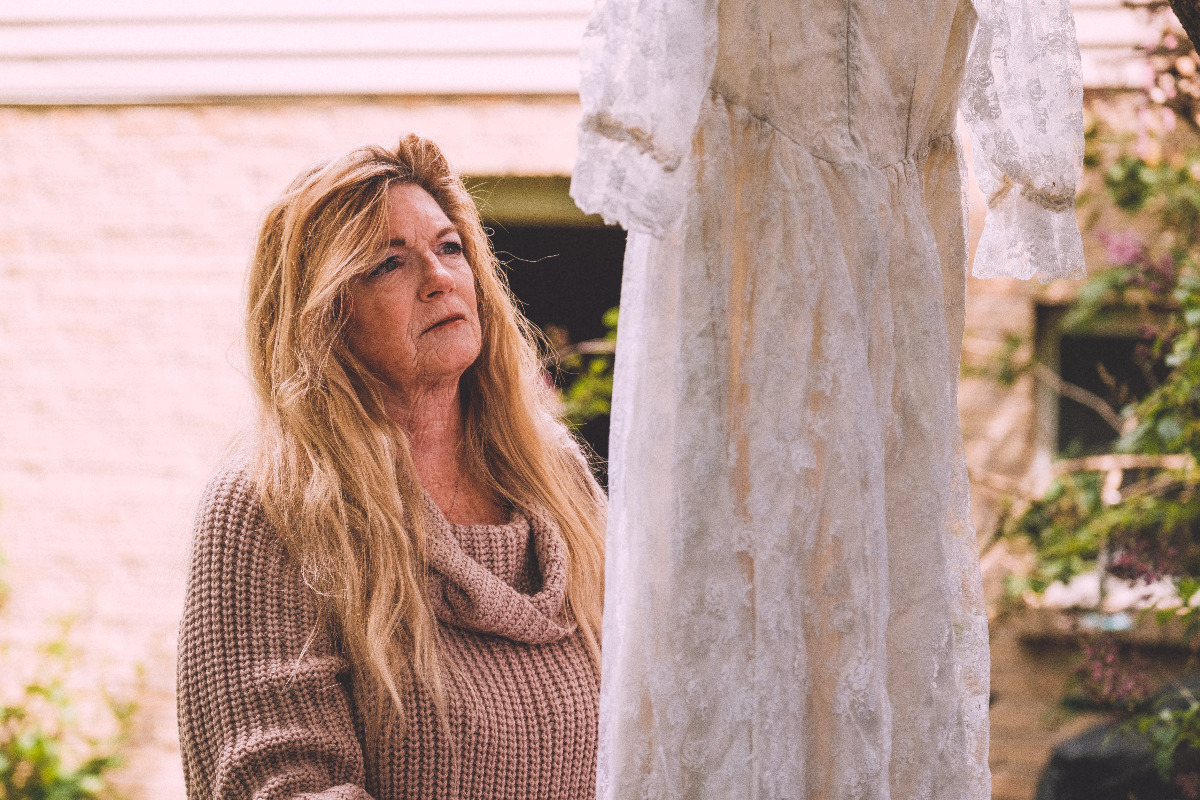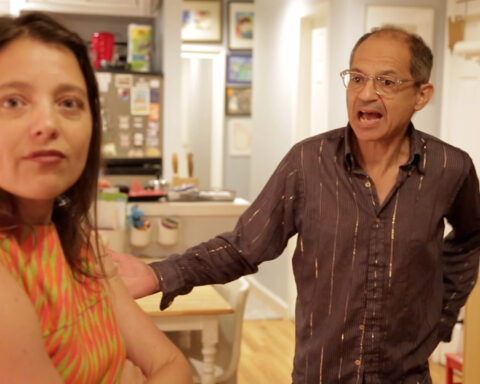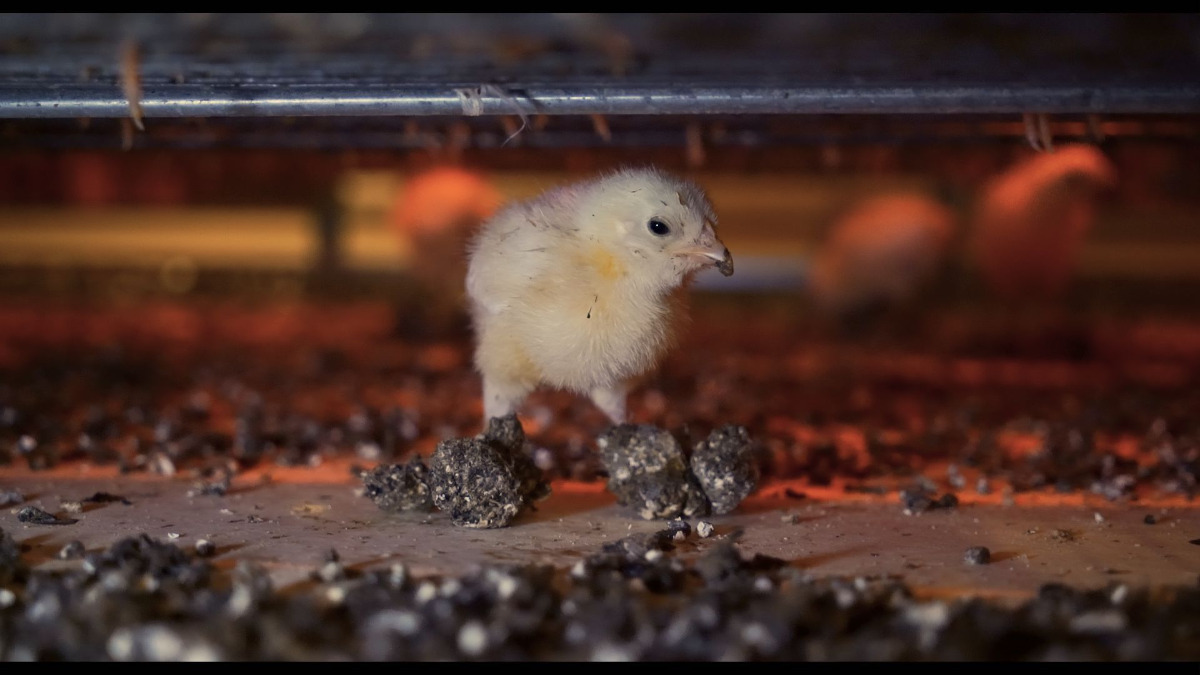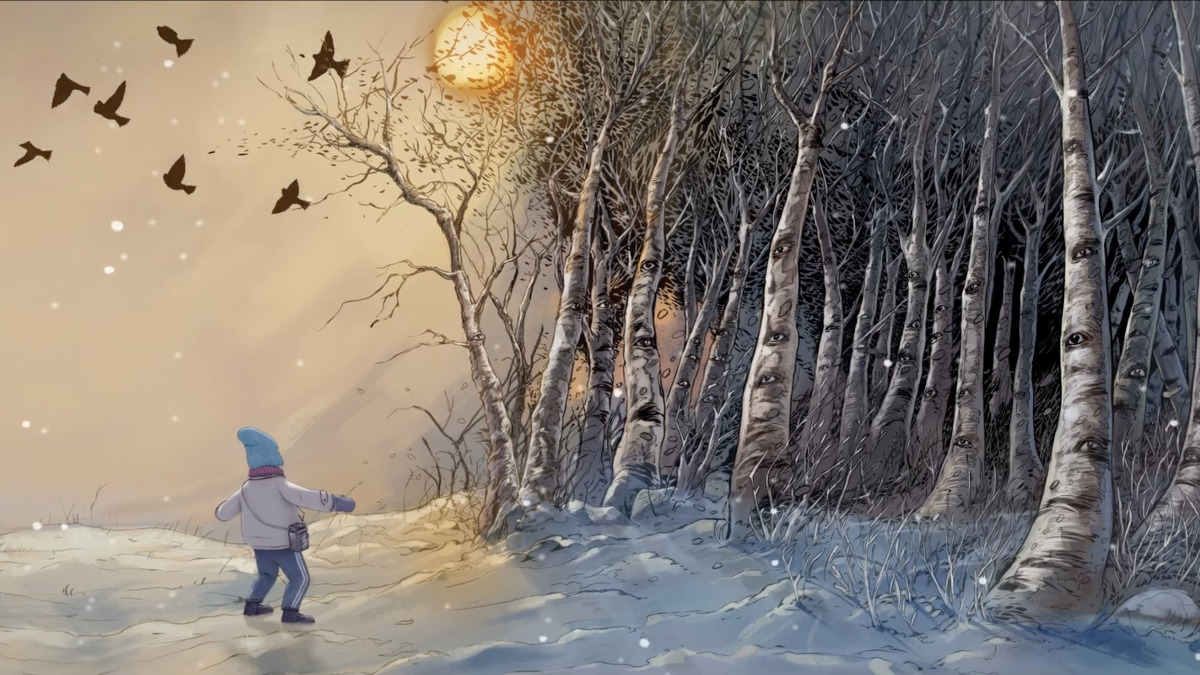Sometimes there’s a wonderful camaraderie when a critic speaks with a filmmaker. An interview can conjure a shared sensibility for how the art of documentary can truly thrive. In my conversation with Nathalie Bibeau, I felt that sense of simpatico, evident as we explored her latest and largest project, The Unsolved Murder of Beverly Lynn Smith.
Following her successful run with the complicated portrait The Walrus and the Whistleblower, which won the Audience Award at Hot Docs 2020, Bibeau was tasked as showrunner and series director for The Unsolved Murder of Beverly Lynn Smith. This dark story of a cold case in Oshawa, an hour east of Toronto, is complicated by some shocking recent developments that make the story not simply one of vicarious thrill, but a deep probe into larger questions of justice, fairness, and tenacity. Told over several episodes, Bibeau and her team have created a highly stylized and sophisticated story that they hope will upend some of the more predictable true crime tropes and give audiences a bit more of a sophisticated and rewarding tale.
POV spoke with Bibeau prior to the project’s screening at Hot Docs and its worldwide debut on Prime Video.
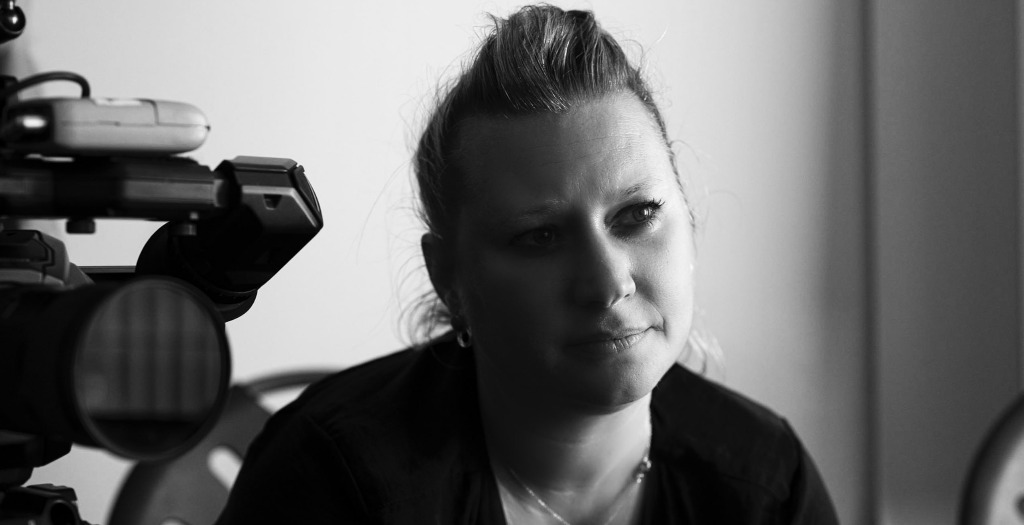
POV: Jason Gorber
NB: Nathalie Bibeau
POV: How did you learn about this strange and complex tale?
NB: I was approached by Tara Jan, who’s the series producer at Muse. They had been developing the story for a couple of years. Once it landed on my desk, I was gripped immediately, for a lot of reasons. I went through an extensive process to be hired by Amazon to lead the project and then it was confirmed. I began as the series director and then became the showrunner, so I played both roles and co-executive producer as well.
POV: I’ve seen the first two episodes, how many episodes is it in length?
NB: Four
POV: What determines the scope on these type of shows about how slowly to tease out the story, or how to compress it? Do you show up at the beginning and know you have four episodes and find a story to fit four episodes, or is it the other way around?
NB: Usually, every project is different. Anyone who commissions has a sense of what the story could be and what they want the project to be, but once you get into the development of the editorial and the production, you realize what you can do. We have almost 50 years of story and extraordinary events and nuances and emotions to explore, so probably could have gone on forever. Even in real life, this story is still ongoing. We knew we could do it justice in the four episodes, but crafting that was quite a challenge.
POV: It’s in the title that the murder is unsolved, so you’re not dancing around that fact. But can you talk about some of the challenges or rewards of working within this episodic medium as opposed to something let’s say, theatrical, like your previous documentaries?
NB: Well, I can say that off the bat that we wanted to shift the conversation on true crime. That was a deliberate intention for us. We wanted to move away from cold, forensic plot development and move toward a premium cinematic treatment of this gripping story that’s affected so many lives. The metaphorical direction that I took actually informed some of the narrative structure. Once we started to think about the universal themes and values that were inherent here, it helped us position the story.
We knew we wanted to be closer to the present day because of a shocking event that happened about 33 years after the murder. We then go back in time and fill in the picture. We have a very shocking police tactic that we wanted to do justice in terms of story. That also informed the narrative structure for us. We knew that we wanted to come at it through various points of view—the point of view that we present in episode one would have been impossible later. Then we could go back and explore all of the tentacles that get us to that point.
POV: What is your own connection with true crime narratives? Is it something that you have been fascinated by before or is it something new for you? Were there particular filmmakers that you looked at to see how to navigate your version?
NB: I’m new to true crime, professionally. I have stayed away from it because of how it is often done. I’m more interested in elegant, complicated profound, difficult stories.
POV: …Nuance?
NB: Nuance, thank you. I use that word a lot. It is apt. Walrus and the Whistleblower is full of nuances and so is this one. I like to do things quietly occasionally when it fits, because I think it’s more powerful when you’re not hit over the head. My biggest inspiration was Murder in the Bayou. It’s a Showtime series, exquisite in its art and sensitive approach to tragedy. It’s character-driven. It uses verité, it also uses metaphor. And so, which was right up my alley in terms of how I like to tell stories. I took what I had done with Walrus and the Whistleblower and actually expanded it and grew. I had a larger team, a bigger budget, and I could do more things with it, so I elevated my capabilities as a filmmaker and tried to put something together that almost felt like narrative fiction. Yet it is a stranger than fiction story with twists and turns you can’t believe.
The true crime genre has been popular for some time, but I think it can get tired and also exploitative. Hopefully people will find that this offers something a bit different and deeper than they might have seen.
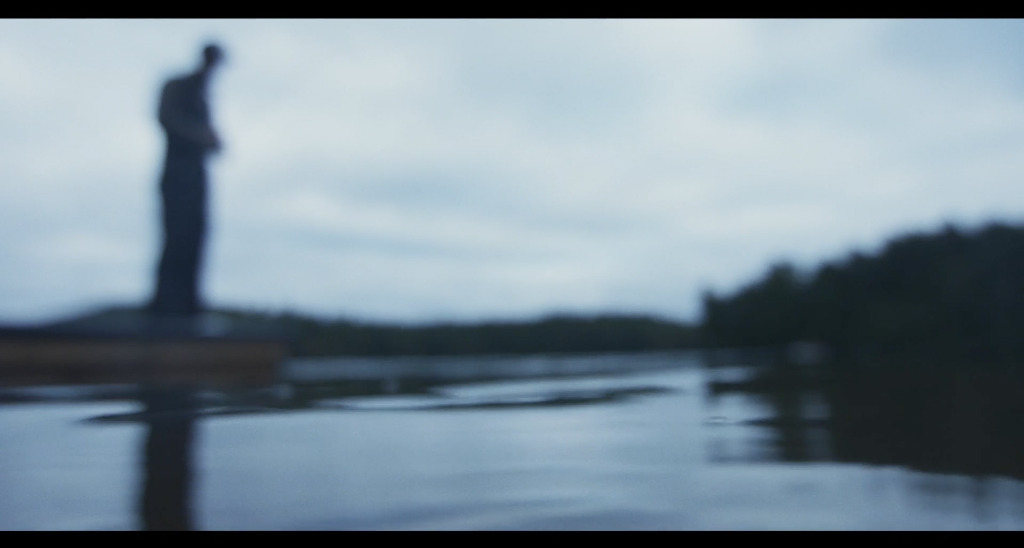
POV: These are real lives, these are real people, you are doing things like recreations. You are using montage, you are using score, you are using, again, fiction tropes to tell a true story. You have a responsibility to a certain level of the truth, but also have a responsibility to create entertainment. In terms of navigating that as a position of show runner, how did all of that work? Were there sleepless nights?
NB: Yeah, there were sleepless nights! The work was like nothing I have ever done, honestly. I have never ever worked this long and this hard in terms of hours and heart. There were 250 people on this show who worked alongside me to do that and all of us had the intention to do it right and just. We stayed away from literal recreations, so that’s why we wanted to go into metaphor because, as we all know, sometimes when apply a metaphor and you think about it poetically, you can access a greater truth. You can access an emotional truth that is sometimes harder in a purely journalistic genre.
POV: Is there a specific metaphor that you can talk about without ruining whatever surprises there are for people?
NB: Yeah, there’s my favourite [laughs] but I’m trying to think if I can talk about it in a way that doesn’t reveal anything.
POV: I mean, there’s a metaphor for fishing. Let’s put it that way.
NB: That’s the biggest one—the metaphor for fishing. I’m just trying to find the words to discuss it in a way that doesn’t give away the reveal at the end of episode one. But yes, how do I talk about it without doing that?
POV: I’m now putting words in your mouth, but with any investigation taking place, inevitably your film itself is also fishing for information.
NB: Absolutely, and also, the metaphor runs deep. Still waters run deep. What is it that you find when you drop your anchor? Reeling in. I’m getting closer to spoiler-land here, but this idea of reeling in and luring. I was motivated by the desire to pay respect to the police whose ultimate goal was to catch the killer. Their intentions were to catch the person, the culprit, the person who killed Beverly Smith. So fishing for that killer, and the methods that were used, I think had ample space for me as a creator and explore what that must have felt like for them, and also what it felt like to be the fish. Also, what it felt like for the family who needed that fishing to be done.
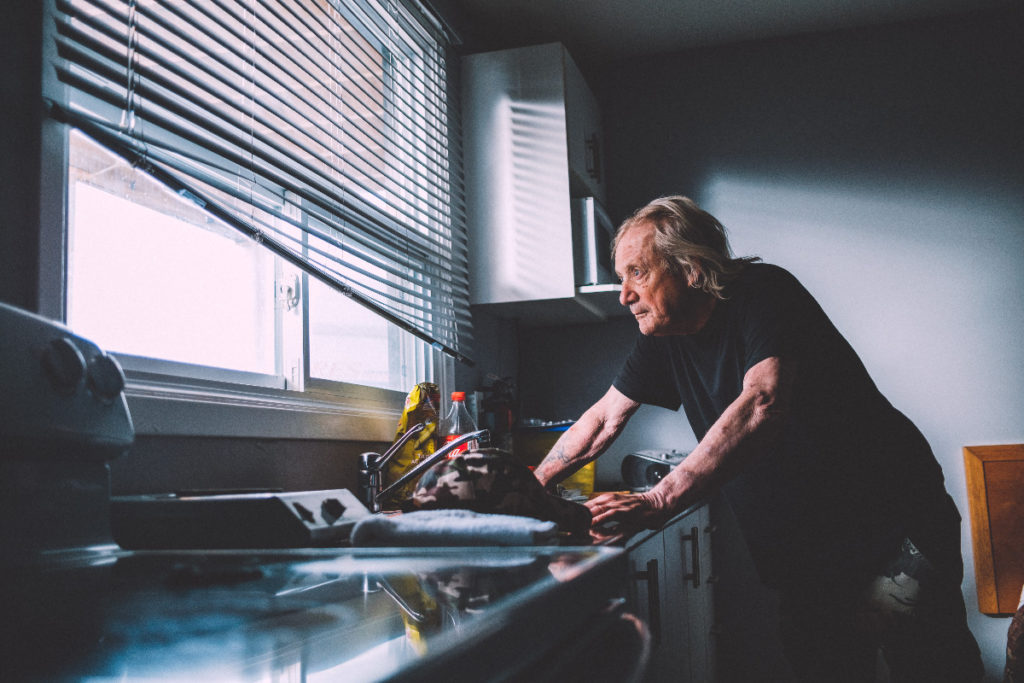
POV: I’m someone who goes to film festivals ahead of time because I hate spoilers. I don’t read the back of the box to see what I’m going to watch. I understand 100% the joy and the real ridiculous and awful generational need to have everything ruined for you ahead of time. That being said, based on the fact that this is a non-fiction story, it’s strange to navigate. I’m just wondering if for you, creating something that works even if you aren’t surprised by the surprises. How do you structure something so that not all the heavy lifting is done by the shocking reveal?
NB: Let me ask you this before I answer the question. When you watched it, did you know anything?
POV: I knew enough about filmmaking to know if what you were telling me as a filmmaker was true to what was happening, but I did not know the story ahead of time. In a funny way, I could see the big reveal because I watch too many documentaries and I know the only way that something is happening is if it actually happened. So I had a different level of enjoyment, but I went in as cold as possible, like a cold case.
NB: Great. So absolutely, we were cognizant of that. Also, this story has been written about in the media, so we can’t hide from the fact that if you wanted to have the information, you could certainly have it. I am like you, however, I don’t read the back of the boxes. I don’t Google anything. If I hear about a show, I watch it if I want to watch it. I want to go on the ride that the creator and the filmmaker wanted me to go on. And so, I suspect that some people will be like that, and some people won’t.
We had that in mind when we created the series. What we think is interesting on its own. Even if you know some of the surprises, the merits of the story and the ride is worth it. The human emotion is strong enough to keep you in. Even if you know some of the facts, you can’t possibly know the emotion. We wanted to convey the respect and sensitivity we showed to the participants, and how intimate the access was.
POV: And yet, I’m 100% convinced a bunch of people will watch this, misunderstand the title or think it’s a ruse, and get to the end of the fourth episode and say, “This is all bullshit, I want to know what actually happened.”
NB: You think people will feel cheated?
POV: I think many people want easy answers. You didn’t do Blackfish, which I think is one of the most appalling nature docs ever made. With Walrus you said, “Ok, you think you know everything about the environmental movement, let’s do something and twist it on its head.” You are clearly, like me, wanting documentary to create conversations rather than end them.
NB: Exactly. You said it beautifully.
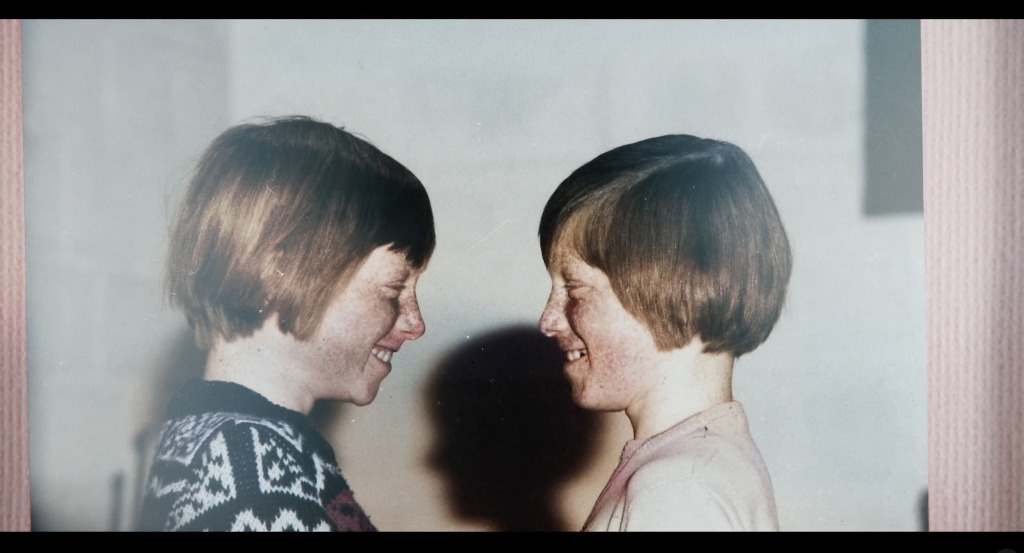
POV: Prime Video, as a streaming service, may be where people want an end of the book as it were, to use another metaphor. Why should I watch this story if you’re not actually giving me a cathartic ending?
NB: I have to give, in all truth, major props to Amazon because never once was it presented as a concern that we wouldn’t be feeding that need for immediate gratification. We did not want to make a whodunit. So chapeau to them for respecting the vision that I had developed. They wanted to do something a bit different, certainly on their platform. They were bold from their point of view. For me, I was doing what I do, and they supported me. But I also always try, to be honest, as a human, not to underestimate people…
POV: I’m a critic [laughs]. You’re a filmmaker and you have to believe in humans, I’m a critic and I know otherwise.
NB: Exactly. That’s exactly right. [Laughs.] I could not do the work that I do if I believed otherwise. The ending to Walrus and the Whistleblower is a giant question mark.
I literally made that film in the space of Blackfish, so I was like, “No effing way am I going to fucking do that.” There were people who wanted a Canadian Blackfish, and I was like, “Sorry.”
POV: That was Sharkwater, which is a whole other conversation.
NB: Exactly. But, again, I don’t think I could this work if I didn’t believe that there are other people like me who want to go deep, explore things from a different point of view, and be surprised and feel things they may not have been expecting. It’s OK to be frustrated!
POV: It’s OK to make something that challenges people’s preconceptions and, in so doing, engages them with the work.
NB: Yes. That is what I’m saying. Is it ok to take a unique stance on a story, to explore it in a different way, to challenge those preconceptions. You might go into this story thinking you know everything, or that you know who killed Beverly Smith. You might come out feeling differently. Your opinion might change ten times while you watch this series. That is something that we wanted to explore as a concept because of the complexity of the story. Any other way, we wouldn’t have done the story justice, and I wouldn’t have wanted to work on that series.
I have a relative who’s in jail because of a sting like this. His name is Denis Ratte, he’s in jail in B.C. The Fifth Estate did a story about it a couple of years ago, you can get details on it there, but there were so many things on the back of Walrus, thematically, that got me here. It’s all around human nuance, human hubris, a messy human fable. One of the things that drew me in was this idea that I have a connection with someone I didn’t grow up with and didn’t know, but he’s my mom’s cousin. He’s currently in jail because of this [sting], and I was immediately interested in the societal complexity.
The Unsolved Murder of Beverly Lynn Smith premiered at Hot Docs 2022 and debuts on Prime Video on May 6.




